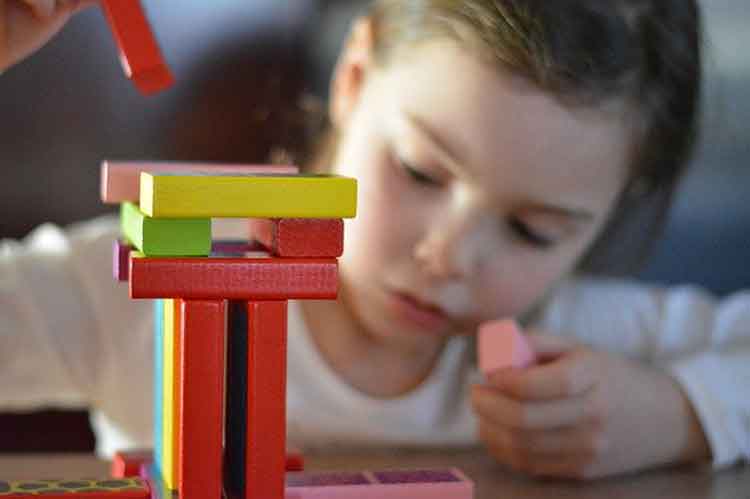Table of Contents
Features and Challenges of Gifted Children
Parents are proud and affectionate when they see their children advance in their life. Many times, in the early stages of life, your child perceives himself to be more skilled or faster than other children his age, or that he understands and discovers things rapidly. It accomplishes feats that you can’t even imagine. It is possible to raise your child appropriately if you recognise the right indicators and know whether or not he or she is gifted.
What Is The Definition Of A Gifted Child?
It is vital to classify gifted children before they may be identified. A gifted child possesses exceptional mental abilities and excels in specialised areas of knowledge. A youngster is deemed talented in most nations if his or her IQ score is 130 or higher. A gifted youngster, on the other hand, can thrive in a variety of areas, including verbal, mathematical, visual, artistic, musical, and even interpersonal communication.
Also Read: 35 Good Habits of Kids

Gifted Children Have Several Common Qualities
There are certain distinguishing characteristics of gifted children that might help you determine whether or not your child is gifted:
1. Ability to learn quickly and reason clearly
Your youngster can learn new things faster than others and can clearly and concisely explain every facet of learning.
2. Early on, self-assured speaking with a broad vocabulary
Your child, in comparison to other youngsters, is less afraid of speaking in public or formulating his own opinions, and is able to express himself using the appropriate words and sentence structure.
3. Extremely ready to read and ask a plethora of pertinent questions
The child enjoys reading and is not afraid to ask questions.
4. An insatiable curiosity and a razor-sharp memory
Typically, a child wants to know a lot of topics and can memorize a lot of information quickly.
5. Maintaining a high level of concentration for an extended period of time
Your child has no trouble focusing on one problem or one book for an extended period of time.
6. Finishing a favourite project to the end
When anything catches his eye, he doesn’t let go until the task is finished.
7. Finding satisfaction in solving issues and coming up with unusual answers
The child’s eyes glitter when he sees brain teasers and riddles, and he takes a breath as he solves them in various ways.
8. Unusual and diverse imaginations
Your youngster converses and recounts stories about imaginative worlds or inventions, complete with all the details.
9. He is a solid believer in justice and has a strong viewpoint.
Your youngster is fair to everyone and is not scared to speak up for others.
10. Prefers to spend time with seniors rather than children of his age
Your child enjoys interacting with elders more than he enjoys playing with other children his age.
Also Read: Best Way to Teach Youngsters to Read

Gifted Children’s Issues / Challenges
Gifted children are unique, but they can also have behavioural issues that parents should be aware of and address.
1. Tiredness
Gifted children are usually energised all of the time and devote all of their energy to doing what they enjoy. As a result, they grow weary rapidly and lose their vitality, as their bodies are still developing. Apart from that, completing daily activities such as schoolwork, keeping things organised, being perfect in everything, and so on, might cause them to become worried and prevent them from accomplishing the work they desire.
2. Disorganization and Attention Issues
Because gifted children think about things differently and have a diverse range of thoughts, they rapidly become bored with mundane tasks. As a result, individuals have trouble concentrating or keeping things organised.
3. Having Trouble Making Friends
One of the most serious issues that gifted youngsters encounter is this. When it comes to social relations, they may appear mature on the outside, but on the inside, they are lonely and miserable among children their age. They don’t seem to have much in common with their classmates, and they have trouble participating in group activities. Their proclivity for doing things better than others may be a contributing factor in their arrogance.
4. Inability to Be Patient
They feel frustrated with themselves and stop performing the task if they come across anything they don’t grasp right away or aren’t very good at a certain activity at first. Other children are still irritated by the fact that their classmates take so long to learn simple concepts that they already understand.
5. Impossible Expectations
Children who are gifted have high expectations of themselves. If they have been continuously receiving good grades, a single low grade can devastate them from the inside out, and it can also be a blow to their parents. They set high standards for themselves, and when those standards aren’t satisfied, they become melancholy.
6. Control Issues
The majority of gifted children prefer to do things their own way. You’ve probably seen that children prefer to complete chores on their own and dislike being interrupted by their parents. This tendency to do things a certain way over time can make other people appear arrogant or bossy, and it can also make them fearful of taking risks.
7. Being a Perfectionist
Gifted youngsters strive for perfection in all they do, and as a result, they are winners for the rest of their lives. This could be due to the fact that they delay excessively or spend too much time attempting to perfect everything. Gifted youngsters can put in more effort in some areas while displaying average performance in other areas without even recognising how much time is wasted, how exhausted they are, or how their health is harmed.
8. Guilty Feelings
Yes, gifted youngsters experience shame as a result of their abilities. They acknowledge their ability and may feel compelled to share it with others or return it in some way. They have good social behaviour as a result of this, and they help and cooperate with others. However, if they have a sense of guilt, they will work even harder for it, and people will take advantage of them as a result.
9. Insecurities about One’s Own Worth
This blessing can also be a curse for youngsters, isolating them from their peers and making them feel alienated. Oppressors may target talented youngsters, affecting them to become dejected. Many studies have discovered that bright youngsters have significant social challenges and emotions of sorrow. They are self-conscious of their behaviours and feel unimportant, which can lead to mood swings and cynical behaviour.
Also Read: Excellent Eating Habits in Children

What Can Parents And Educators Do To Assist Gifted Children?
Raising a gifted child is a struggle in and of itself. This not only causes challenges for the child, but it also adds to the burden of caring for and maintaining their unique qualities.
- Allow children to do things on their own terms without fear of repercussions.
- Allow them to take risks and fail without fear of repercussions.
- Seek out other gifted youngsters and make an effort to integrate them into the community.
- Request that your child’s teacher spend some extra time with them to satisfy their requirements.
- Provide them with activities that teach them the value of establishing a balance between what is important and what necessitates significant consideration.
- Introduce them to a questionnaire method aimed at eliciting higher-order thinking skills.
- Allow children to solve problems on their own with very little instruction.
- Provide them with challenges that will allow them to hone their decision-making skills.
- Encourage them to employ unconventional tactics that do not follow the rules.
- Allow children to engage in activities that stretch their creativity and imagination.
- Give them some tasks with detailed instructions and others without.
- Try to grasp the fact that social maturity has nothing to do with intelligence.
- Give them the opportunity to try a variety of learning and teaching methods.
- Try to reduce the amount of time they spend on repetitive chores and replace them with tasks that expand on what they already know.
- Educate them on the differences between various activities and tactics.
- Allow them time and space to figure things out for themselves.
- Be there for them in times of need and offer emotional support, which youngsters often require.
Also Watch: Mantras for Memory, Intelligence & Success

What Is The Difference Between A Gifted Child And An Intellectual Youngster?
Intelligent children are commonly referred to as “God-given.” However, there are certain distinctions between talented and clever children, which are listed below:
- The gifted youngster asks more questions than the bright child, who knows the solution to the inquiry.
- The gifted youngster is curious, whereas the clever child is interested.
- The gifted youngster pays attention, but the clever child is entirely absorbed.
- While intellectual children’s suggestions are valuable, gifted children’s suggestions are exceptional.
- While the clever child works hard, the gifted youngster achieves higher grades despite exerting less effort.
- The gifted youngster asks questions based on the answers to the clever child’s questions.
- The clever youngster is at the top of the class, but the talented child is in a distinct group.
- The gifted youngster listens intently, but the clever child has formed his own firm opinion.
- An intelligent youngster can learn quickly, but a gifted child already knows everything.
- An clever child masters a task after repeating it six to eight times, whereas a talented youngster masters it after only two attempts.
- The talented youngster understands the instructions well, but the intellectual child comes up with a different theory.
- The gifted youngster prefers being around older children and seniors, whereas the bright child enjoys being with pals.
- The gifted youngster produces the theory, whereas the intelligent child absorbs the meaning.
- The talented child completes homework, but the intelligent child begins new initiatives.
- The gifted child is adept at inventing, whereas the bright child is good at copying.
- The gifted child uses the information that the clever child gathers.
- The gifted youngster invents techniques, whereas the intelligent child employs them.
- The talented youngster prefers complexity to the intelligent child’s clarity.
- The gifted child can guess well, whereas the clever child recalls well.
- While the clever youngster is pleased with his performance, the gifted child aspires to do even better.
Gifted children are uncommon, and if you have one, your life will undoubtedly be filled with ups and downs. Allow her to bloom on her own terms by giving her the time and support she requires. A star must shine in order to shine, and it will!